I visited the ‘nimby capital of England’ – it’s heaven

“This is Dad’s Army England, and we want it to stay that way. What’s wrong with that?”
It’s a good question for a cold afternoon in the Essex seaside town of Frinton-on-Sea. I give it some thought while watching mobility scooters whirr down the timewarp high street, where shops are closed because it’s Wednesday. That’s a thing here, shops closing on a Wednesday. Frinton plays by its own rules.
“It has a reputation,” admits the fifty-something Frintonian I’m talking to, who wishes to remain nameless. “It’s always been quite traditional.”
That’s an understatement. Frinton, an unapologetically “snobby” seaside resort renowned for resisting change, is the unofficial nimby capital of England. It infamously said ‘no’ to a fish and chip shop until 1992, amid concern it would lower the tone. It fought tooth and nail against the radical concept of a pub on similar grounds, eventually conceding in 2000. Now it’s leading the fightback against second homes.
In a sign, perhaps, of things to come for the rest of England, local councillors – in anticipation of new powers that will soon be granted to them – have voted to hike up council taxes on properties that are not full-time occupied from 2025.
The aim of the 100 per cent tax increase is to deter outsiders from buying holiday homes in Tendring District, which Frinton sits in, and turning them into Cornish-style ghost towns lived in only during holidays. Locals I speak to broadly welcome the move, but expect it to make “no difference” given how deep pockets have to be to buy around here.
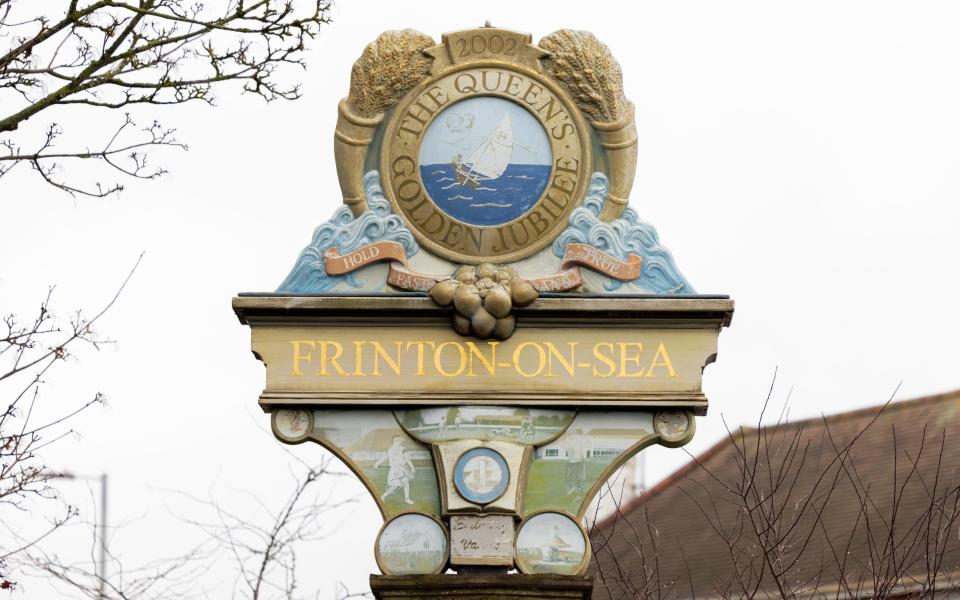
That Frinton is among the first towns in England to take advantage of the new powers (Welsh and, as of December 2023, Scottish councils already have the option) is no surprise given its history of Dad’s Army resistance.
Funny though, I don’t recall Bedouin restaurants or tapas bars in Dad’s Army. But Frinton has one of each, and everyone I speak to raves about them, including the anonymous local.
“We’re not anti-change, just the right kind,” she says. “I realise that sounds terribly snobby.”
Indeed. But it’s an attitude that feels collective in Frinton, and there is an honesty to it; it’s a reminder, perhaps, that within us all lurks a nimby. Walking down the high street towards Frinton’s unusual grassy promenade, I can’t help but feel that there is something to be said for (sometimes) clinging to the old ways.
Had Frinton rolled out the red carpet for big chains like most towns have, it would probably have lots of empty shops on its hands. Instead, it’s lined with small independents. Some look like they haven’t seen a punter since the Blair years, but no matter: Frinton is, if nothing else, defiantly not an identikit town (despite Greggs and Costa worming their way in).
“Everything has gone online now so it’s good we’ve still got all these independents,” says Karen Kent, who’s shopping in Great Danes, an uber-trendy Danish homeware shop along the high street.
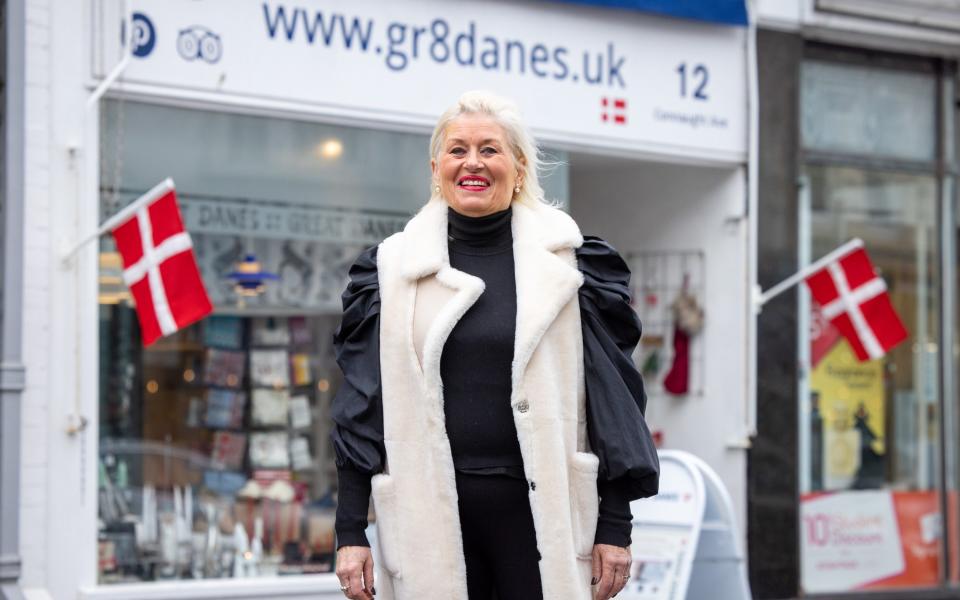
One of Frinton’s few concessions to cool, Great Danes is run by Birgitte McLain, a Danish former translator for the European Parliament. Why Frinton? “I was looking for a sandy beach to walk my Labrador,” she says. “And it’s close to London.”
Great Danes doubles as a wine bar some evenings. A cork pops suggesting this is one of them. “I come every week after I’ve done my shopping,” says regular Ann Tooby, a glam former City of London broker, sipping her wine.
“I did the bar thing because I thought there was something missing here,” adds McLain, pouring me a glass. “Everything closes at 5.30 here, even in summer – it’s so weird. But you can’t tell them, they won’t listen.”
They? The local nimby brigade, who were up in arms a few years ago when the council replaced the man who opened the level crossing gates with automatic barriers. “They had to take the gates away in the middle of the night [in case of protests],” says McLain. “This is what you’re up against.”
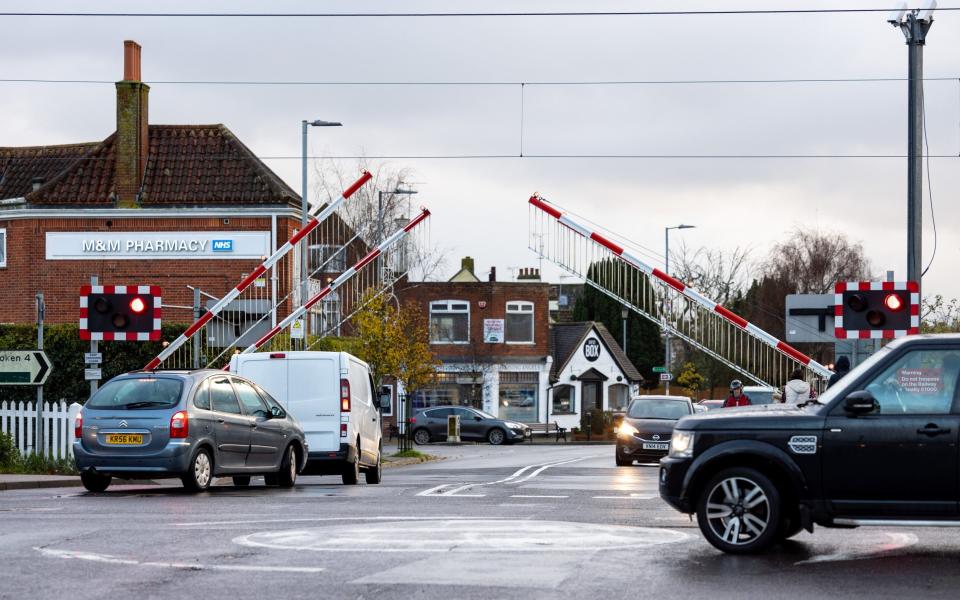
The gates, though, were hugely symbolic in Frinton. The only way in and out of town, they were long a marker of status; living “inside the gates” carried a certain cache, an air of exclusivity; “outside the gates” not so much.
It’s an attitude that persists among some older residents. A snippet of local news I heard almost everywhere – a testament to how small Frinton is, but also its outlook – concerned a local woman and her Jag. Versions of the story varied, but she was allegedly pulled over for driving without insurance, tax or an MOT (and, according to some, no licence). When the policeman highlighted her many misdemeanours, she simply retorted “it’s okay officer, I live inside the gates”.

I walk up to the Lock and Barrel, the first and only pub inside the gates. Peter Clarke, its owner, reckons that even the most ardent local sceptics have come round to the pub.
“I see them standing outside, looking through the windows at 11 in the morning to see what we’re doing with the place,” he says, as fruit machines flicker nearby. “People are realising that it’s a warm, friendly, family-run pub.”
Opposite the Lock and Barrel, Hannah Giles shuts Caxton Books for the day. Giles grew up in Frinton and never planned to return after pursuing a career in TV. But something pulled her back.
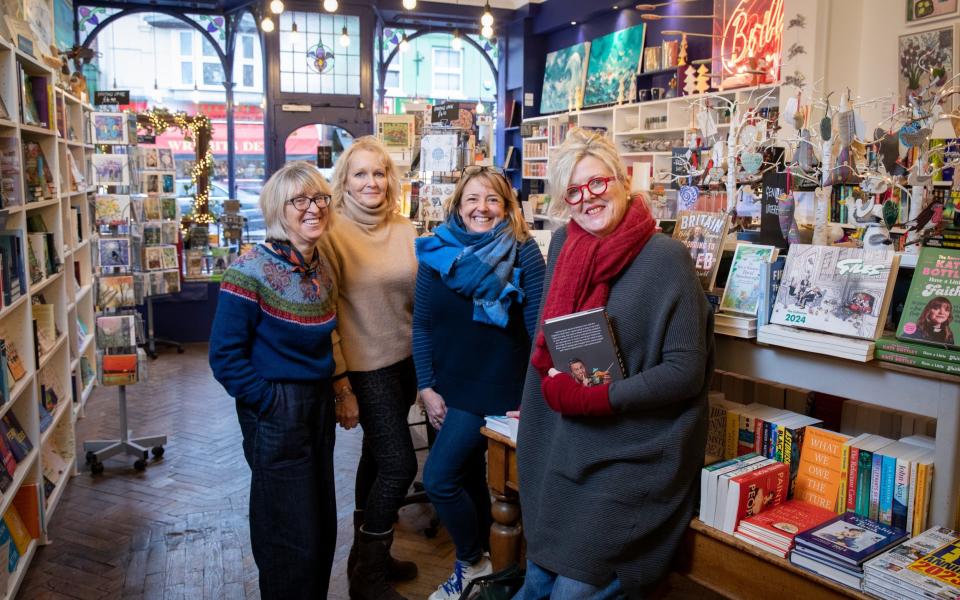
“It’s a little bubble, a tight-knit community,” she says, backdropped by beautiful displays of books. “There are lots of people like us trying to keep it creative. The summer theatre is great. It’s a genteel, traditional seaside town. Not a cor blimey guvnor, kiss-me-quick kind of town. I love it.”
Another returnee is sharp-dressed restaurateur Andreas Mina. Having worked at London’s Soho House, he migrated back across the Essex marshes to Frinton to help his mother, Zsazsa, run Avenue Bistro, which wouldn’t feel out of place in the West End.

“It’s a funny place,” he says of Frinton, but then everyone does – it’s aware of its weirdness. “You either love it or hate it, but we love it. It’s given us so much over the years and we wanted to give something back.”
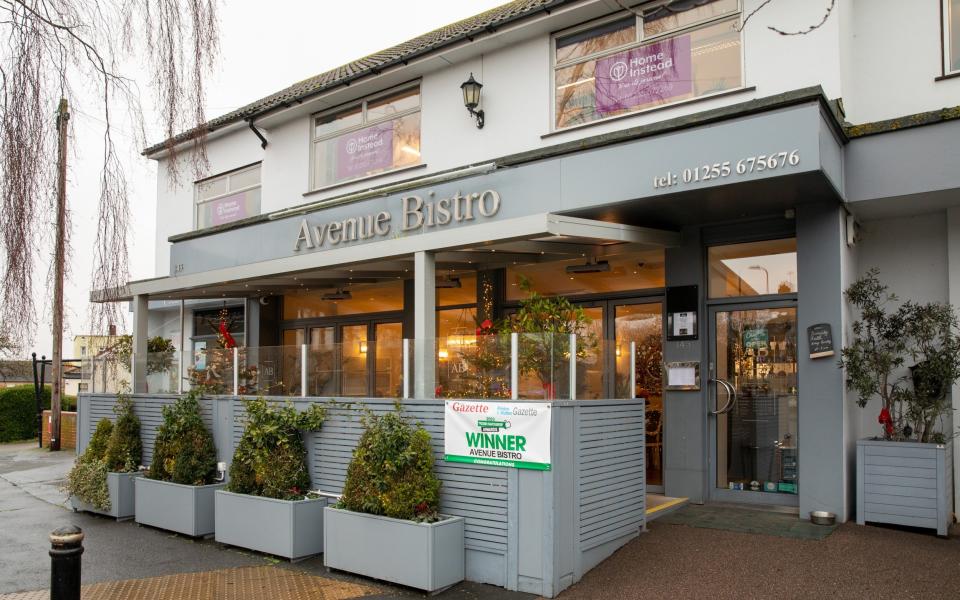
I step out of Avenue Bistro into the cold night. On the walk back to the station, two schoolgirls riding a shopping trolley overtake me. It’s a pleasing display of delinquency in prim and proper Frinton; a reminder that what’s dreamy for the old is often dreary for the young. I want to ask if they’ve heard of Dad’s Army, but they’re going too fast.


